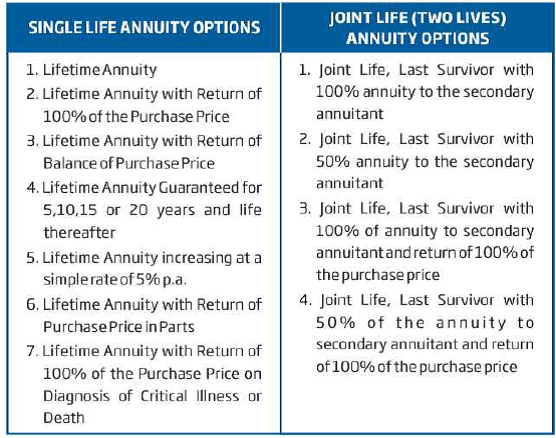The question “How to generate regular monthly income?” is no longer a question among retirees; even many youngsters are also looking for ways to set up a passive source of income.
Some ask due to unsecured job environment and some have plans for early retirement, or may like to start something on their own in few years time. In both the cases the major reason for the regular monthly income is to support the family expenses during the uncertain phase.
Creating a Second source of Income also is one of the reason one prefers to put the savings to work.
In this post I will discuss few products and strategies which can used by investors to supplement or generate the regular monthly/quarterly income.
First thing first, you have to understand that there’s no substitute for financial planning. In this case also, the basics of financial planning has to be worked upon first like keeping adequate emergency fund, having adequate insurance coverage and also a financial discipline in savings and spending.
You need to have clear cut idea on how much would you like to have as your Regular monthly income and for how long? Well, this figure will come out from the monthly important expense structure of your family, thus you need to work out a family budget and distribute the expenses into Fixed, variable, discretionary and non discretionary, urgent and avoidable.
Also do note that even though we are going to be discussing the Products but every strategy has some limitations and you need to work out according to the current economic conditions. So like interest rates were quite low in 2020-21, and thus in fixed income space the expectation should have been quite less, and in 2023 the same stream will get boost from high interest scenario.
So, you have to have a flexible and multi product strategy to manage the requirement.
Very simple Maths- More you put in, more you get.
6 Products & Strategies to Generate regular monthly income
Below are some of the products which can be used to generate regular monthly income. Here I will cover only those schemes which generate monthly or quarterly income. Annual income products are out of purview of this article.
- Rental Income
The Most popular, Easy to Understand and Most Sought after way to generate Monthly Income is through Rentals. No Brainer strategy.
This is generally considered to be a sure shot way to have a Regular Monthly Income, along with Investment in Property which parellell provides the capital appreciation, and back of the mind along with security provides a natural high of owning Real estate.
Pros:
a) Owning a Property Gives a sense of Security to The Investor.
b) Rental/Lease Income especially in Commercial Property does have some Regularity
c) Commercial property has high Rental Yields vs Residential Property
Cons:
a) There could be long periods of No Rents due to Vacant Property. So this may not be considered as sure shot Income generating way
b) Rental Yields are Comparatively quite Low in India
c) High Value Investment is Required.
d) Sometimes maintenance of property takes major portion of Rental Income earned.
e) Have to Chose Tenants quite carefully. Else, legal troubles gives lot of headache. - Post Office MIS:
This product is available with Post offices in India. It has an investment limit of Rs 9 lakh in single holding and Rs 15 lakh in joint holding.
However, the interest rates may get revised every quarter by Government of India, but since this is one time investment plan, so once invested the rates get fixed fro the entire tenure.
The maximum tenure for which one can invest is 5 years. Current rate of interest is 7.4%. You will get Monthly interest payouts and interest credited in your bank a/c directly.
Pros:
A) This is a Guaranteed return instrument. Sovereign Guarantee
B) Once Invested, the rates will be fixed for entire tenure. So no reduction will bother you
C) You will receive fixed monthly income
Cons:
A) Normally the fixed income product rates matches with the Market inflation rates. So high rates may also mean high inflation going on. Thus the Real rates may be less or in negative
B)You cannot Invest more than the defined upper Limits.
C)If Interest rates are increased , you cannot have that benefit - Immediate Annuity products of Life Insurance companies
Annuity is synonymous to Pension. Annuity means a fixed sum of money paid at regular intervals. Generally immediate annuity products are used to supplement the pension income during retirement years and now days there is even a condition of buying these products once your pension plans / New pension Scheme gets matured. (Read: How pension plans in India works)
This immediate annuity product can be used by anyone. The pension/annuity or regular income amount depends on the amount you have invested, payout option (monthly/quarterly/Annually) you have selected and annuity option opted for.
These products come under traditional/endowment insurance category and once fixed, annuity will never get changed, unless the product provides flexibility of changing the annuity options in the mid of the term.
Read More on the Annuity Options available to NPS Subscribers here.
Pros:
1. These Immediate annuity plans are normally guaranteed by the Insurance companies
2. Fixed Income product with no linkage to the Market Movements
3. Flexible options in case you want to continue these annuity to your family even after your demise
Cons:
1. Annuity once fixed can’t be modified, even after increase in the annuity rates.
2. No Inflation indexing happens. So even though your expenses increase with high inflation, annuity will not.
3. Annuity rates looks quite low vs other available fixed interest instruments.
Below options are of HDFC Life Immediate Annuity Plans: - Bank/Corporate Fixed deposits with Monthly/Quarterly interest payout.
Bank fixed deposits are regular products used by almost everyone. These deposits can be taken in cumulative or interest payout options. Interest payout can be taken in monthly or quarterly intervals.
Same ways there are some corporate fixed deposits issued by some corporate. These deposits have to be Credit rated. The highly rated deposits usually have a lower interest rates in comparison.
These deposits can be used for a regular monthly income payout
Pros:
1. Bank deposits are Guaranteed up to Rs 5 lakh per depositor. and corporate deposits are not guaranteed but you may select the company as per the Credit rating profile.
2. Simple product. Easy to Invest (Especially bank deposits)
3. These are not locked in Products. So if you find any Significant Increase in Market Rates, you may withdraw from old deposits and invest at new high rates.
Cons:
1. Just like other fixed income options, these are not inflation Indexed. Real Return is quite less.
2. More then 5 lakh of bank deposits are not insured by DICGC. - Senior citizen savings scheme
This product is available only for Senior citizens i.e the investor should be of age 60 years or higher.
Even a person who’s crossed 55 years of age and has taken VRS can invest in this product to generate regular income.
The maximum deposit one can make is of Rs 30 lakh in single or joint holding.
The rate of interest like PO MIS is linked to the G sec rates and keeps on varying each year. But once invested the rate will remain same for the complete tenure. Tenure of this product is 5 years which can be extended for 3 more years.
And the current rate of Interest is 8.20% ( April 2023) with quarterly interest payable. Read about SCSS in detail - Reverse Mortgage
This product is also available only to Senior citizens to generate regular income. This is meant for those people who don’t have much liquid savings available with them and have only a house in their name. In this product the owner of the house who should be a senior citizen mortgage the house with a bank in return for monthly or lump sum payment.
The best part in reverse mortgage is that senior citizens can stay in the same house till end and they don’t have to repay anything to the bank. After their demise the legal heirs will be asked to repay the loan else bank will sell the house and return back the excess to the legal heirs after deducting the loan and interest amount.
This product is not so popular product as of now. But looking at the people’s passion for real estate and also compromising retirement savings for their children or liking towards paying EMI instead of monthly savings, this reverse mortgage product is going to be hugely popular in times ahead. - Mutual funds with Systematic withdrawal Plans
Mutual funds Systematic Withdrawal plan is a brilliant way to make arrangement for Regular monthly income. If strategised well, it may also help in getting positive real returns.
You may apply SWP in any type of fund, depending on your risk appetite and kind plus quantum of income required. Though you have to keep the expectation and income limited to the market interest rates, but when combined with equity oriented funds, the combined portfolio gives necessary impetus to the returns by maintaining the liquidity profile intact
Equity funds gives necessary growth to the portfolio and debt funds helps in generating secure income.
Read more on how Systematic withdrawal plan works.
Generating Regular Monthly Income – Conclusion
As I quoted at start, regular monthly income needs varies from person to person. Some requires it to supplement the retirement income, for some this is going to be the only source of income and some people just look out for another passive income product. Before selecting any of the products, be sure about the impact of taxation and inflation on your returns and select accordingly.
It may look nice to have a separate passive source of Income, but if you don’t need a regular payout then better let the money accumulate and compound.
Do you know any other product which can help in generating regular income (monthly/quarterly)? Share your views.








 Manikaran Singal is the founder and Chief financial planner at Good Moneying Financial Solutions. He is a CERTIFIED FINANCIAL PLANNER CM and SEBI registered Investment adviser (Regd no. INA 100001620). He’s having 20+ years of experience in financial services space.
Manikaran Singal is the founder and Chief financial planner at Good Moneying Financial Solutions. He is a CERTIFIED FINANCIAL PLANNER CM and SEBI registered Investment adviser (Regd no. INA 100001620). He’s having 20+ years of experience in financial services space.


Sir, I need to understand the terms sale price and purchase price in terms of capital gains. I bought a residential flat in 2009 taking loan of 18 lakhs from bank, where as registry papers are showing registry worth 17.9 lakhs. Now what shall be my purchasing price ?? Next to it, I sold this property in 2018, for which registry papers were made of 20 lakhs. Where as buyer took a loan of 27 lakhs and i got cheque in two parts, 1st part of 20 lakhs and another part of 7 lakhs which was shown as extra work or renovation at home. Now what will be my selling price ?? And what is my actual capital gain ?? Also Kindly suggest me how to reinvest to save capital gains.
Punit, i think you should better consult a CA on this. To me, your purchase and sale price should be the one that is written on papers. But since you have got the sale proceeds higher than the one that is on papers and that too through cheque, so this is confusing to me. Please consult a good CA